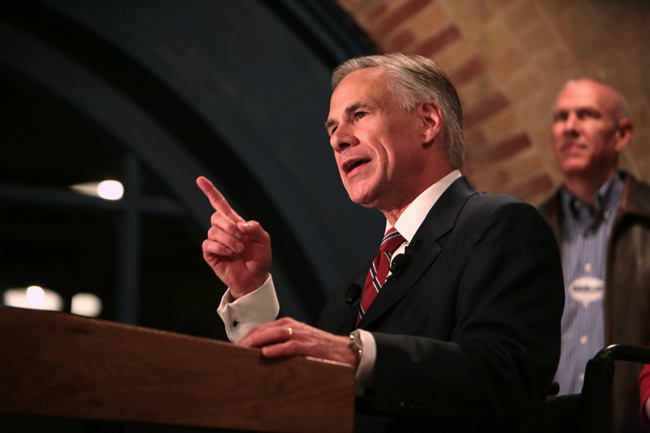Voters across the state turned out Tuesday to vote in elections at the federal, state and local levels. The results weren’t unexpected — state Sen. Wendy Davis, D-Fort Worth, and Attorney General Greg Abbott will go on to the governor’s race, a near-certain outcome going into the primaries. But tea party conservative Dan Patrick’s victory Tuesday in the Republican primary for lieutenant governor and the lower-than-expected margin of victory for Davis were the strongest sign yet that Battleground Texas, the Democratic effort to turn Texas blue, has a long way to go.
Beyond the tea party dominance that Tuesday’s outcomes demonstrate, the results deserve close attention for two reasons. First, in Texas the general election is usually decided by the primary since there is relatively little competition between two major parties. Second, this year saw the greatest number of open races of any election in Texas in more than a decade. Obviously, we can’t call any of the general elections yet, but Tuesday’s results do give us a good feel for how things will turn out in November.
Lieutenant Governor
Students may not have kept a close eye on the primary for lieutenant governor this year, but its results were perhaps the most surprising. Sure, we expected the primary to go to a runoff, but we didn’t expect tea party favorite Patrick, a state senator from Houston, to best incumbent David Dewhurst by more than 10 percentage points. With his reputation for anti-immigrant rhetoric and Bible-thumping speeches, a win for Patrick in the powerful position of lieutenant governor would mean a major change come the 84th Legislature.
Patrick was kept from a nomination-clinching majority by Dewhurst, also from Houston, who won 28 percent of the vote and will face Patrick again in a May runoff. That leaves two unpalatable choices, but one whose policies we can swallow a little more easily than the other’s. As columnist David Davis Jr. recently pointed out in The Daily Texan, all four candidates in the race were pulled to the right by U.S. Sen. Ted Cruz’s rhetoric, whose polarizing and obstructionist tea party-inspired tactics in Washington have set a new standard for Texas Republicans. However, Patrick blared his conservative horn louder than the rest. Like the other candidates, Patrick objected to the Dream Act, which allows undocumented college students to pay in-state tuition. But he was the only candidate with the track record to prove that he would actually try to repeal it. Dewhurst still doesn’t look great, but he sure looks better than Patrick.
Governor
The most closely watched race this year on a national level, the primary for governor, went exactly as expected. Abbott defeated three opponents with more than 90 percent of the vote. On the Democratic side, Davis won the nomination easily, although with a smaller share of the vote than many predicted: just under 80 percent against political unknown Reynaldo Madrigal, a judge from Corpus Christi.
U.S. Senate
Voters also chose their nominees for one of Texas’ seats in the U.S. Senate. Incumbent John Cornyn, who was belatedly endorsed by first-term Sen. Ted Cruz on Wednesday, beat back a challenge from more conservative tea party candidates and will face in the general election either Dallas dentist David Alameel, who has donated money to both Democrats and Republicans in the past, or disavowed Democratic candidate Kesha Rogers, who has gone so far as to call for the impeachment of President Barack Obama. Neither Alameel nor Rogers secured more than 50 percent of the vote, so they will head to a runoff in May — a runoff that, like the one between Patrick and Dewhurst, leaves voters with two bad choices: Alameel, the one with the divided loyalties, or Rogers, the fringe activist whom the Democratic Party has openly disavowed. Can we have a do-over? Sure, Alameel is the lesser of two evils, but with much better qualified candidates on the ballot, we really wish neither of the top two vote-getters were in the running for such an important position.
With Republican primary voters swinging even further to the right than expected, students should pay attention to the rhetoric from the soon-to-be-minted nominees. While the general election is still eight months away, the dominance of the Republican Party in state politics means most of last night’s winners will be winners again in November.
Correction: Because of an editing error, an earlier version of this editorial incorrectly stated that Kesha Rogers had called for Barack Obama's execution. Kesha Rogers' staff created a video in 2012 that suggested Obama's doctor "administer some pentothal of sodium," a drug commonly used in lethal injections.
















